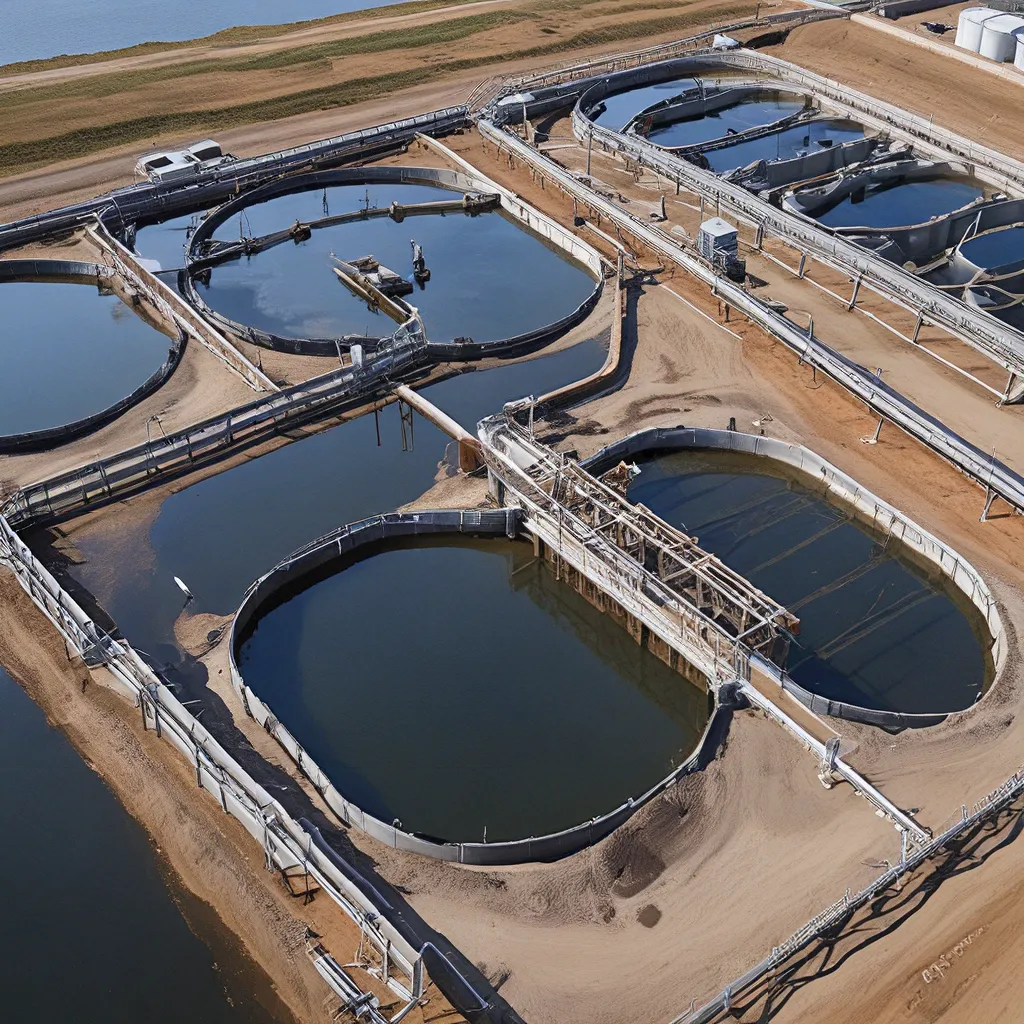
As the world grapples with the ever-increasing challenge of managing our precious water resources, the role of wastewater treatment has become increasingly critical. It’s no longer just about treating effluent – it’s about transforming wastewater into a valuable resource, one that can power our communities and protect our environment.
The Transformative Power of AI in Wastewater Management
In recent years, a powerful combination of simulation technology, artificial intelligence (AI), and synthetic data** has emerged as a game-changer in the world of wastewater management. By harnessing the power of these advanced tools, we can now tackle the growing volumes of wastewater with unprecedented efficiency and sustainability.
One of the key areas where AI is making a significant impact is in predictive analytics. By crunching vast datasets on water quality, usage patterns, and environmental factors, AI algorithms can foresee potential issues and enable real-time optimization of treatment processes. This proactive approach not only prevents pollution but also delivers substantial cost savings through reduced energy consumption and operational expenses.
But the benefits of AI in wastewater treatment go far beyond just cost savings. It’s also revolutionizing nutrient removal, a critical component of ensuring the quality of treated water. Optimizations facilitated by machine learning algorithms have demonstrated the capability to enhance nutrient removal by 30-40%, making a tangible difference in the environmental impact of wastewater treatment.
Embracing the Sustainable Future of Wastewater Management
The adaptive nature of AI-driven control systems is a game-changer, continuously fine-tuning parameters like chemical dosages and flow rates to achieve a dual impact of environmental sustainability and financial prudence. By integrating these transformative technologies, wastewater treatment plants can not only improve their operational efficiency but also deliver substantial return on investment (ROI).
But the story doesn’t end there. The market for AI solutions in wastewater treatment is thriving, with nearly 20 companies offering commercial offerings – from innovative startups to established industry players. And the focus of these solutions is shifting from providing insights for individual assets to encompassing entire treatment plants, becoming increasingly predictive and prescriptive.
Predictive Maintenance: A Game-Changer in Wastewater Management
One particularly exciting aspect of this technological revolution is the advent of predictive maintenance. By utilizing predictive analytics, we can now estimate when key components of the wastewater treatment system are likely to fail, enabling us to plan maintenance work accordingly. This not only saves on costly repairs but also reduces extended downtime periods, ensuring the continued smooth operation of these critical facilities.
As I recently learned, one key aspect of sustainability involves the use of predictive analytics to assess the impacts of interventions and operations, because sustainability concerns the long-term performance of water systems, often beyond their design life. This is where the power of AI-driven predictive maintenance truly shines, empowering us to make more informed decisions and optimize the long-term sustainability of our wastewater infrastructure.
Real-World Examples: AI-Powered Wastewater Treatment in Action
But enough about the theory – let’s dive into some real-world examples of how AI is transforming wastewater treatment in practice. Take the case of the Svinninge wastewater treatment plant in Denmark, which recently underwent an upgrade to increase its capacity by 40% while meeting stringent effluent requirements. This plant is the first full-scale facility in the world to deploy Veolia’s groundbreaking Cella technology, a sustainable, compact, and energy-efficient solution for wastewater treatment.
The Cella technology, which harnesses the power of renewable materials and optimizes resource utilization, is a shining example of how AI-driven innovations can pave the way for a greener and more efficient future in wastewater management. By leveraging advanced biofilm technology and minimizing chemical consumption, the Svinninge plant is pushing the boundaries of what’s possible in sustainable wastewater treatment.
Embracing the Future: Integrating AI and Sustainability
As we continue to embrace these technological advancements, the future of wastewater management looks increasingly promising. AI is playing a pivotal role in creating more efficient, cost-effective, and sustainable processes, all while ensuring compliance with environmental regulations.
But the journey doesn’t end there. Ongoing research and active debate surrounding the potential of AI in wastewater treatment suggest that there’s still much more to explore. As we continue to push the boundaries of what’s possible, I can’t help but feel excited about the possibilities that lie ahead.
At Alpha Wastewater, we’re at the forefront of this technological revolution, leveraging the power of AI and sustainable practices to redefine the wastewater treatment landscape. By collaborating with innovative partners and embracing the latest advancements, we’re committed to delivering solutions that not only protect our environment but also drive meaningful change in our communities.
So, what does the future hold for wastewater treatment? Likely a future where AI-powered systems seamlessly integrate with renewable resources, optimizing every aspect of the process to create a greener, more efficient, and more sustainable world. And I, for one, can’t wait to be a part of that transformation.
Unlocking the Potential: Collaboration and Innovation
Of course, the path to this sustainable future isn’t without its challenges. As with any technological revolution, there are ongoing debates and uncertainties that need to be navigated. But by fostering collaborative partnerships and embracing the spirit of innovation, I believe we can overcome these obstacles and unlock the true potential of AI in wastewater management.
Whether you’re a municipality looking to upgrade your wastewater infrastructure or an industry player seeking to leverage the latest technologies, I encourage you to explore the possibilities. Reach out to the experts at Alpha Wastewater – we’re here to guide you through the process and help you harness the power of AI and sustainable practices to transform your wastewater treatment operations.
Together, let’s embark on a journey towards a future where wastewater is no longer a burden, but a valuable resource that powers our communities and protects our planet. It’s time to redefine the way we think about wastewater, and AI is the key to unlocking a greener, more efficient, and more sustainable tomorrow.